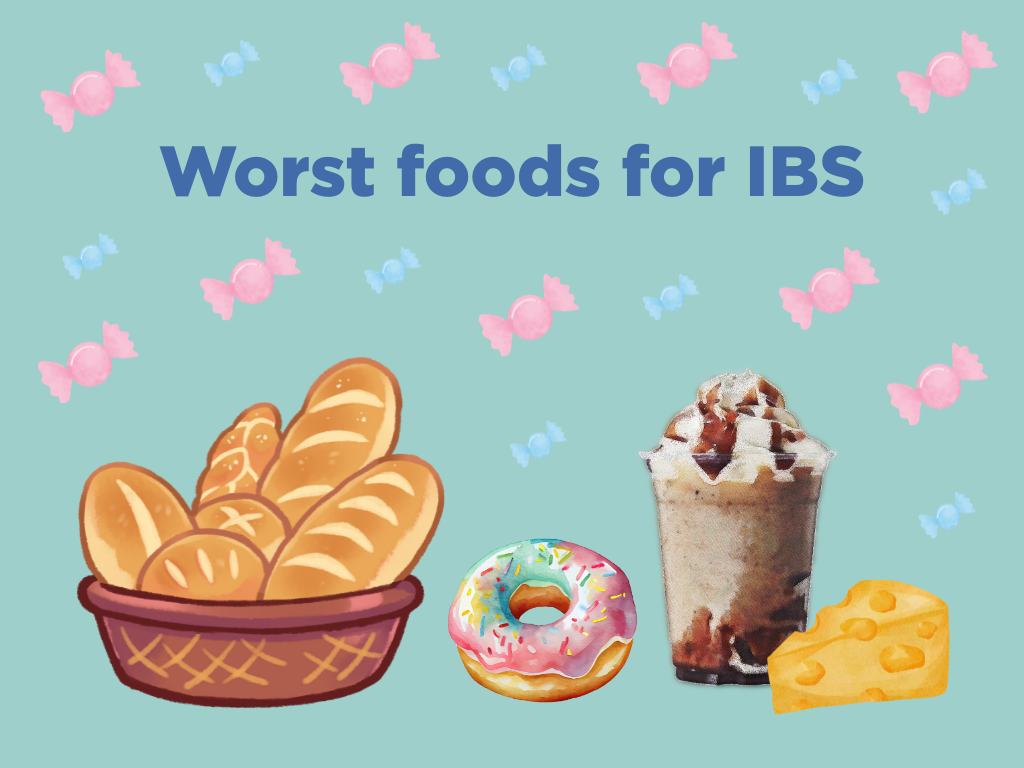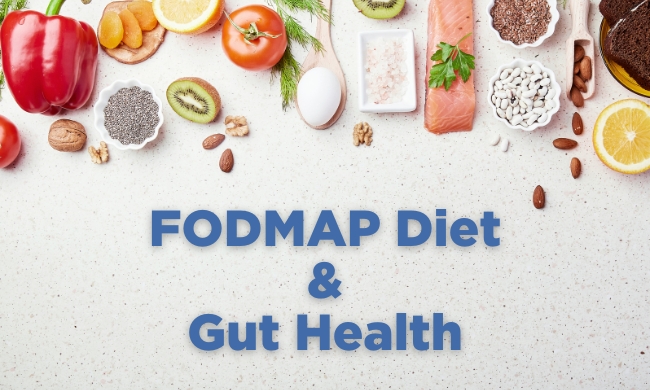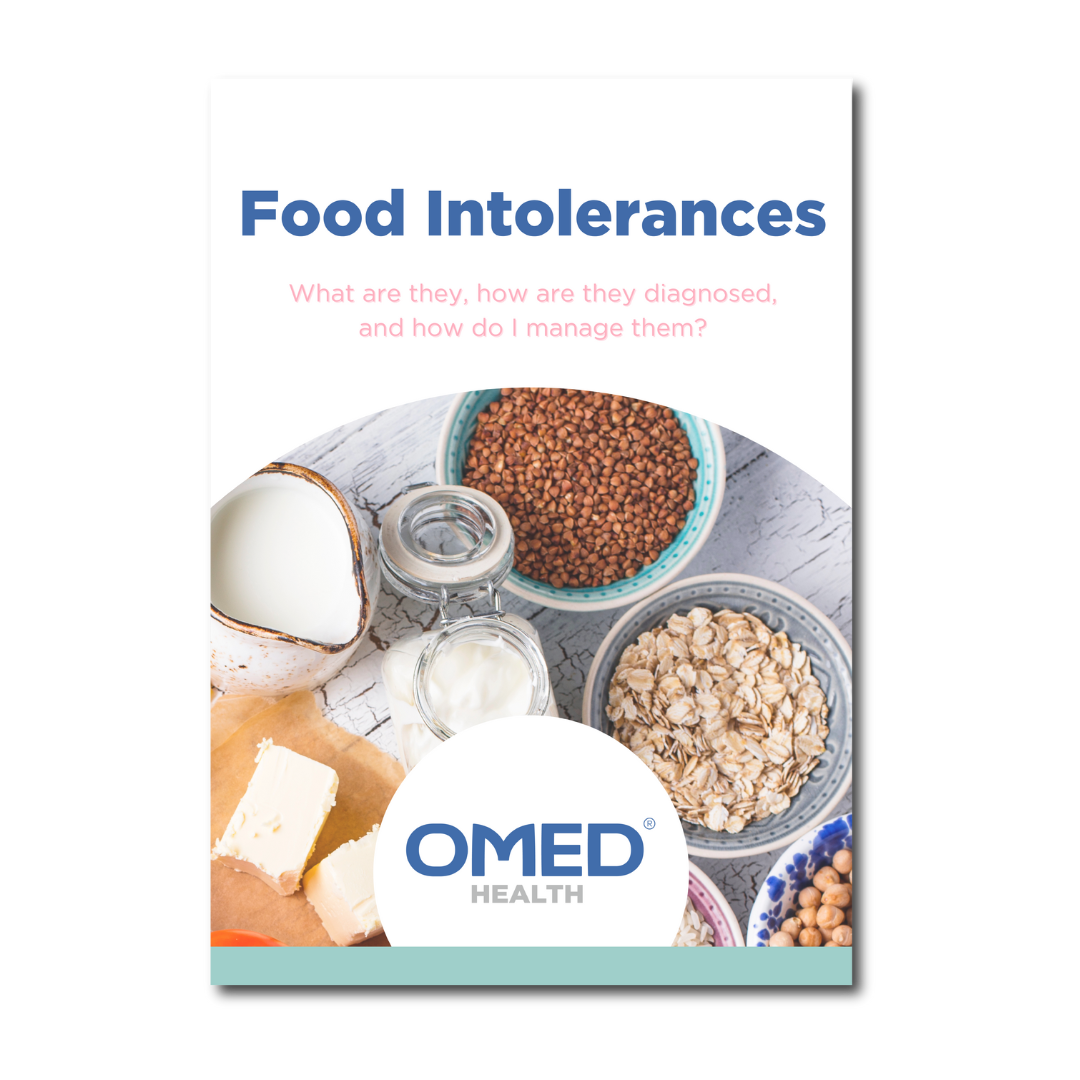You may be familiar with the term FODMAP or have seen it in relation to gut health and the gut microbiome on social media but what is it and how is it related to your digestive system?
In this blog, we will explain what the FODMAP diet is, what it can mean for you, and how it plays its part in digestive health to potentially alleviate symptoms such as constant bloating, a heavy stomach feeling, excess gas, constipation, and diarrhea.
What is the low FODMAP diet?
The low FODMAP diet was developed in 2004 by scientists at Monash University and works by excluding certain carbohydrates from the diet to establish whether they are causing dysbiosis in the gut microbiome, leading to painful and uncomfortable symptoms in relation to irritable bowel syndrome (IBS) or small intestinal bacteria overgrowth (SIBO).
“Recent evidence suggests that 61% of individuals experience symptom relief with the Low FODMAP diet (Martin et al., 2015).”
What does FODMAP stand for?
The acronym can be broken down into fermentable oligosaccharides, disaccharides, monosaccharides, and polyols. The ‘F’ stands for fermentable, which refers to sugars that are readily fermented by the bacteria present in the large intestine, producing gas. For sugars to be fermented they must reach the large intestine, meaning that they are not digested or fully absorbed in the small intestine first. Oligosaccharides, disaccharides, monosaccharides, and are the ‘ODMAP’, and are all examples of short-chain carbohydrates that are absorbed poorly in the small intestine, meaning that they can be present in large quantities in the large intestine, and fermented.
Fermentation of food in the large intestine is normal, however, excessive fermentation leads to large amounts of gas and water being produced. This then stretches the walls of the intestines, leading to digestive health symptoms such as abdominal pain, bloating, diarrhea or constipation, nausea, and fatigue. Therefore, for some people reducing the number of FODMAPs they eat can reduce the amount of fermentable food in their large intestine which in turn can help to alleviate symptoms.
How does the low FODMAP diet work?
There are three phases of the diet: elimination, reintroduction, and maintenance. The first stage sees the removal of high FODMAP foods from the diet, the second oversees the slow introduction of them to the diet to see what may trigger symptoms. And finally, if you have identified foods that can cause symptoms, you are able to remove or reduce them within the diet during the final section.
The idea of the diet is that by consuming fewer FODMAPs, the gas-producing bacteria have less material to ferment, and this then leads to an easing of symptoms. Scientists are not yet sure if these bacteria die or just reduce their activity, and further studies are needed.
The NHS recommends following the diet for 4-6 weeks to see if it can help to alleviate your symptoms. After this period, you should reintroduce foods into your diet gradually and try to determine which ones are worsening your digestive health symptoms.
What foods are low FODMAP?
Apparently, “Is diet coke low FODMAP?” is a commonly asked question!
There are lots of low FODMAP diet books available and you should be able to obtain a full list of included and excluded foods from your doctor. Each list will vary but generally, lower FODMAP foods include eggs, unprocessed meats, and fish, cheese such as cheddar, feta, and brie, milk alternatives such as oat or almond, some whole grains like oats, quinoa, and rice, certain gluten-free products and some fruits and vegetables.
And yes, diet coke is classified as low FODMAP!
You can find out a whole host of low FODMAP certified recipe in our recipe book too.
Who should follow the low FODMAP diet?
FODMAP diets are usually recommended for patients who have been diagnosed with digestive health conditions such as IBS or SIBO. However, as the diet is very restrictive it is not recommended for long-term use or seen as a treatment for SIBO or IBS. There are not currently enough studies to access the longitudinal impact of the low FODMAP diet.
The FODMAP diet has been shown to be able to reduce IBS symptoms. A recent study conducted in Belgium divided a group of 459 patients into two treatment cohorts, with half being treated with a low FODMAP diet and the others prescribed medicinal treatment. The study concluded that ‘a FODMAP-lowering diet should be considered the first-line treatment for IBS in primary care,’ with 71% of the dietary treatment group seeing a reduction in symptoms, compared to 62% in the other group. Remember, you should seek advice from your GP or healthcare professional before commencing a low FODMAP diet.
IBS foods list: What can be some of the worst foods for IBS?
Refined sugar – Feeding the microbes in your gut with sugar when you have an already imbalanced microbiome could make your IBS symptoms worse.
Gluten – Some people can tolerate gluten with no issues, but some with IBS can find this creates trouble.
Dairy – Dairy contains high levels of calcium, vitamin B and protein, which are great for our overall health. However for many people milk products are hard to digest and often struggle with IBS symptoms after consuming it.

How can we help?
If you are interested in longer term monitoring of your gut health, our Breath Analyzer and paired App will allow you to track your food intake, symptoms, and the corresponding hydrogen and methane levels on your breath. This gives you the ability to monitor the effectiveness of any prescribed medicines, changes in diet, over-the-counter medications, or other lifestyle changes you may make for the improvement of your digestive health.
You can also choose to work with one of our experts who will review your data and can define a treatment plan for you, or you can share this data with your own doctor or dietitian to help build the best clinical advice that suits your needs. Whatever you decide to do with your data, OMED Health is there to support you. To get started on your journey towards improving your gut health symptoms for a more comfortable life, purchase yours today.




